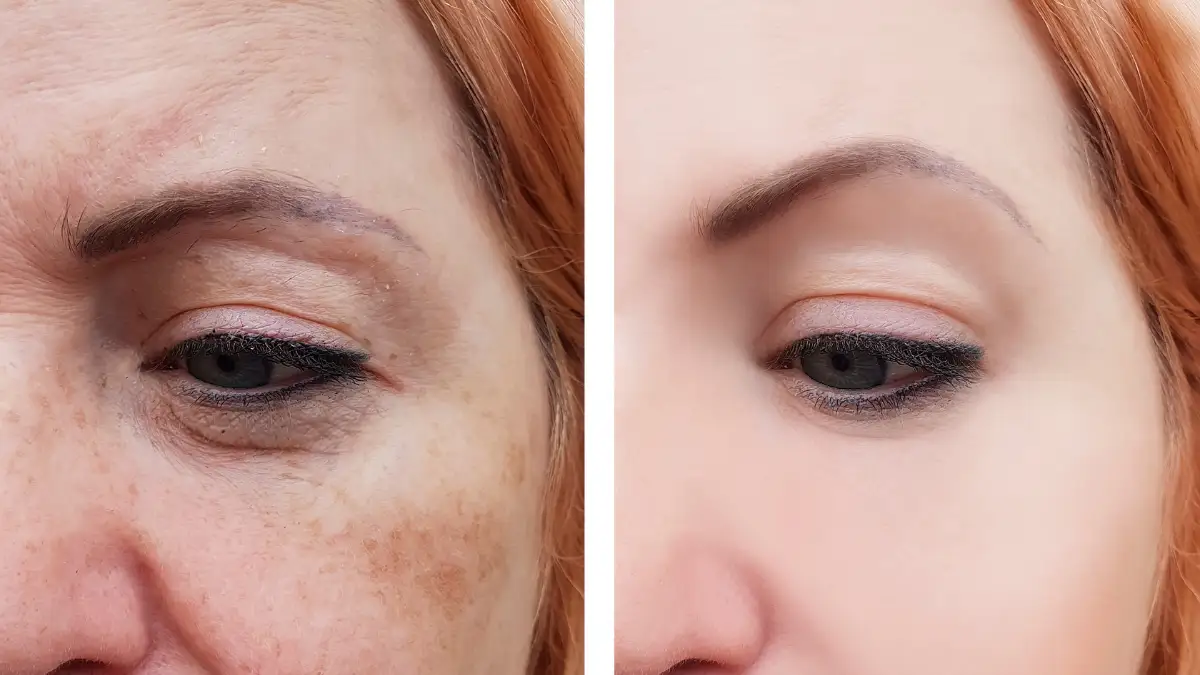Feeling comfortable and confident in our skin is essential for our overall well-being. However, issues like skin pigmentation can sometimes hinder our confidence. In this comprehensive guide, we will delve into the intricacies of skin pigmentation, exploring its causes, types, home remedies, the effectiveness of donkey milk skincare in treating pigmentations naturally, and preventive measures.
Table of contents
Understanding Skin Pigmentation
Skin pigmentation, also known as hyperpigmentation, refers to the darkening of certain areas of the skin. Although not physically harmful, it can significantly impact an individual’s self-esteem and confidence.
Causes of Pigmentation
Skin pigmentation can occur due to various factors:
- Sun Exposure: Prolonged exposure to sunlight stimulates the production of melanin, the pigment responsible for skin color.
- Skin Damage: Injuries like acne or eczema can lead to inflammation, triggering pigmentation.
- Genetic Factors: Some individuals may be genetically predisposed to develop pigmentation issues.
- Hormonal Changes: Fluctuations in hormone levels, such as during pregnancy or menopause, can influence melanin production.
- Allergies: Certain products or allergens can cause skin irritation and subsequent pigmentation.
- Hair Removal Methods: Waxing or shaving may irritate the skin, leading to pigmentation in some cases.
Types of Pigmentation
- Melasma: Commonly seen in women, melasma is characterized by dark patches on the face, particularly on the forehead, cheeks, nose, or mouth. Hormonal shifts, such as those occurring during pregnancy, can exacerbate melasma.
- Post-Inflammatory Hyperpigmentation (PIH): This type of pigmentation occurs as a result of skin inflammation, often triggered by conditions like acne or eczema. Once the inflammation resolves, brown patches may appear on the affected areas.
- Sunspots or Sun Damage: Prolonged exposure to the sun can lead to the development of sunspots, also known as solar lentigines. These are typically light brown patches that appear on areas of the skin exposed to the sun, such as the face, neck, chest, and hands.
Remedies for Skin Pigmentation
Now, onto the good stuff – how do we bid adieu to those stubborn pigmentation patches? Fear not, dear readers, for we’ve got a treasure trove of remedies up our sleeves:
- Topical Treatments: From retinoids to hydroquinone, there’s a plethora of topical treatments available to target pigmentation.
- Chemical Peels: Say goodbye to dull skin with the exfoliating wonders of chemical peels – they help lighten pigmentation and reveal a radiant complexion.
- Laser Therapy: Zap away those pigment woes with the power of lasers! Laser therapy can effectively target and lighten pigmentation patches.
- Natural Remedies: Mother Nature to the rescue! Ingredients like vitamin C, licorice extract, and niacinamide work wonders in brightening skin tone naturally.

How Donkey Milk Skincare Helps Treat Pigmentations Naturally
Now, prepare to be dazzled by the ultimate skincare secret – donkey milk! Yes, you read that right – donkey milk isn’t just for fairy tales; it’s a powerhouse ingredient packed with skincare benefits. Here’s why donkey milk skincare cosmetics deserves a prime spot in your skincare routine:
- Anti-Pigmentation Effects: Donkey milk contains essential fatty acids that help reduce pigmentation naturally [1].
- Skin Regeneration: The fatty acids in donkey milk promote skin regeneration, resulting in a more even skin tone.
- Moisturization: Donkey milk is rich in vitamins and minerals that deeply moisturize the skin, preventing dryness and improving skin texture.
- Gentle Exfoliation: The natural lactic acid present in donkey milk provides gentle exfoliation, promoting cell turnover and revealing fresher, brighter skin.
- Soothing Properties: Donkey milk has soothing properties that help calm inflammation and irritation associated with pigmentation, making it suitable for sensitive skin.
Donkey milk shows ‘promise’ as anti-pigmentation skin care ingredient
CosmeticsDesign Asia

Preventing Pigmentation
Preventing pigmentation involves adopting simple skincare habits:
- Sunscreen: Regularly apply sunscreen with a high SPF to protect the skin from harmful UV rays.
- Sun Protection: Wear protective clothing, hats, sunglasses, and seek shade to minimize sun exposure.
- Skincare Routine: Maintain a consistent skincare routine, including gentle cleansing, moisturizing, and using products suitable for your skin type.
Conclusion
Skin pigmentation can affect individuals of all ages and skin types, impacting self-confidence and overall well-being. Understanding the causes and types of pigmentation is essential for effective management. Natural remedies, such as those involving donkey milk skincare, offer gentle and holistic solutions for reducing pigmentation. By incorporating preventive measures and informed skincare practices into daily routines, individuals can achieve healthier, radiant skin and boost their confidence.
Sources
- timesofindia.com – Why is donkey milk good for your skin
- ncbi.nlm.nih.gov – Effects of donkey milk on UVB-induced skin barrier …
FAQs: Your Burning Skincare Queries Answered!
Got questions? We’ve got answers! Here are some FAQs about Skin Pigmentation: understanding, Cause, Remedies, Donkey Milk Skincare treatment:
Absolutely! Donkey milk is rich in vitamins and lactic acid, which work together to gently exfoliate the skin and lighten pigmentation over time.
Absolutely! Donkey milk is rich in vitamins and lactic acid, which work together to gently exfoliate the skin and lighten pigmentation over time.
A: You bet! Donkey milk is gentle and nourishing, making it suitable for all skin types, including sensitive skin.
It depends on your skin’s needs, but incorporating donkey milk into your skincare routine 2-3 times a week can work wonders for your complexion.
While donkey milk offers a myriad of skincare benefits, it’s always best to complement it with a balanced skincare routine tailored to your skin’s specific needs.